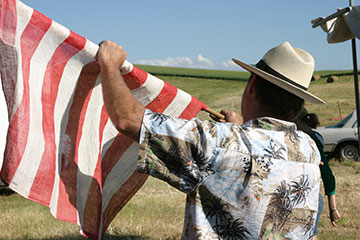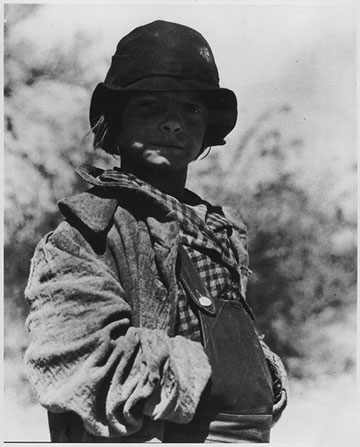Boondocks?
Sticks?
Puckerbrush?
How about the willywags?
If you’re a rural farmgirl, you likely hail from one of the above. The question is:
How do you define “out there” in your neck of the woods?
There’s a good chance that if you’re from, say, the swampy southern outback of the United States, you and I will have a knee-slapping good time communicating exactly where we each plant our roots. As it turns out, the English language is peppered with an astounding array of local dialects and diction. The variety is so vast, in fact, that linguistic idiosyncrasies fill up five full-figured volumes of the recently completed Dictionary of American Regional English (otherwise known as DARE).
As in, I DARE you to determine the meaning of …
discomgollifusticated.
Furthermore …
Have you ever netted a snake feeder?
Do you regularly dine on rivel?
Might I challenge you to a game of schafskopf?
If you’re scratching your noggin’, don’t dismay. It just goes to show that the American “melting pot” theory may be a bit nearsighted. It seems our national lexicon is actually loaded with regional quirks that lend distinct identities to the populations that pronounce them.
Published by Harvard University Press, The Dictionary of American Regional English is a record of American English as spoken in the United States, from its founding to the present. Forget stuffy standards, though. This is not your average dictionary. Oh, sure, it’s alphabetized, but this compendium is crammed with so much more than definitions. We’re talking folk speech—the homey words, phrases, and pronunciations that we learn not from school books, but from our families and friends. And, better yet, DARE defines where these expressions come from and how they’ve evolved over generations. In the words of editor-in-chief Joan Houston Hall, “It captures the language of our everyday lives.”
This is a series of books that, while pricey, would keep a word lover like me riveted for the remainder of the century. To be honest, it makes me ponder patriotism. At a time when so much attention is being given to big bang politics and military matters, I get a much more genuine sense of home knowing that our sometimes discumgalligumfricated nation is woven together with hearty fibers of creative expression.

I DARE you to stump me with a dash of your local dialog.

South Carolina farm girl. Photo courtesy of Wikimedia Commons, Franklin D. Roosevelt Library.





















































Furthermore!! Yep, that’s one from my neck of the woods. Warsh as well. In fact I need to do some warshing today. Midwest are my roots.
My mom was raised out in the toolies in Warshington state. Lots of our sayings migrated here from the Midwest (also known as “Back East”) and Tarheel country.
I come from Western Virginia, also known as West Virginia and here we call it the :Buggerwoods” in a Hollar that you have to pump sunshine in.
LOVE buggerwoods:)
We live in the boontoonies, rural Granville County, North Carolina — right outside of Stem and Shoofly. Really.
Oh there are so many from my childhood on the Chesapeake bay . “Bo” – thats short for the local brew that all and sundry drank, called ” National Bohemian Beer” , as in : ” y’all want a bo ?” . Bloody Blue Murder as in ” she was screaming bloody blue murder “. Ofcourse I mentioned in an earlier dialect post ,” a passel”, and ” a whole slew” . Teensy and/or weensy was always for small. All sentences spoken to a child ended in
” ya hear? ” always . I was especially fond of ” yowssir” for yes, which my mother discouraged as it was more of an African -American dialect. There are tons more as my memory banks open up, I may have to leave a second post later on.
Ok, after working in the garden getting ready for yet another of “Jack Frost’s paintings ( frost) , and our possible late spring snow tonght : ” onion snow”, I remembered a really old fashioned one. ” I swan” (pronounced like the bird) for ” I swear”. You ” don’t hardly never ” hear that one anymore. I grew up with “yonder” but don’t usually hear that one anymore. “haighnts” ( spelled several different ways) for the word “ghost”. “much obliged ” for thank you -so polite. “hang a louie” for turn left and ” hang a ralph ” for turn right . My personal favorite phrase for folding money: ” dead presidents”. Calling any old woman you don’t know by name : ” Aunt” or “Auntie”, and for old men ” Uncle” , a leftover from slave days. We all are familiar with ” a mess o’ ” for any large amount usually referring to food. ” I heard tell” always referring to gossip.
Pingback: Dialectible | Raising Jane Journal